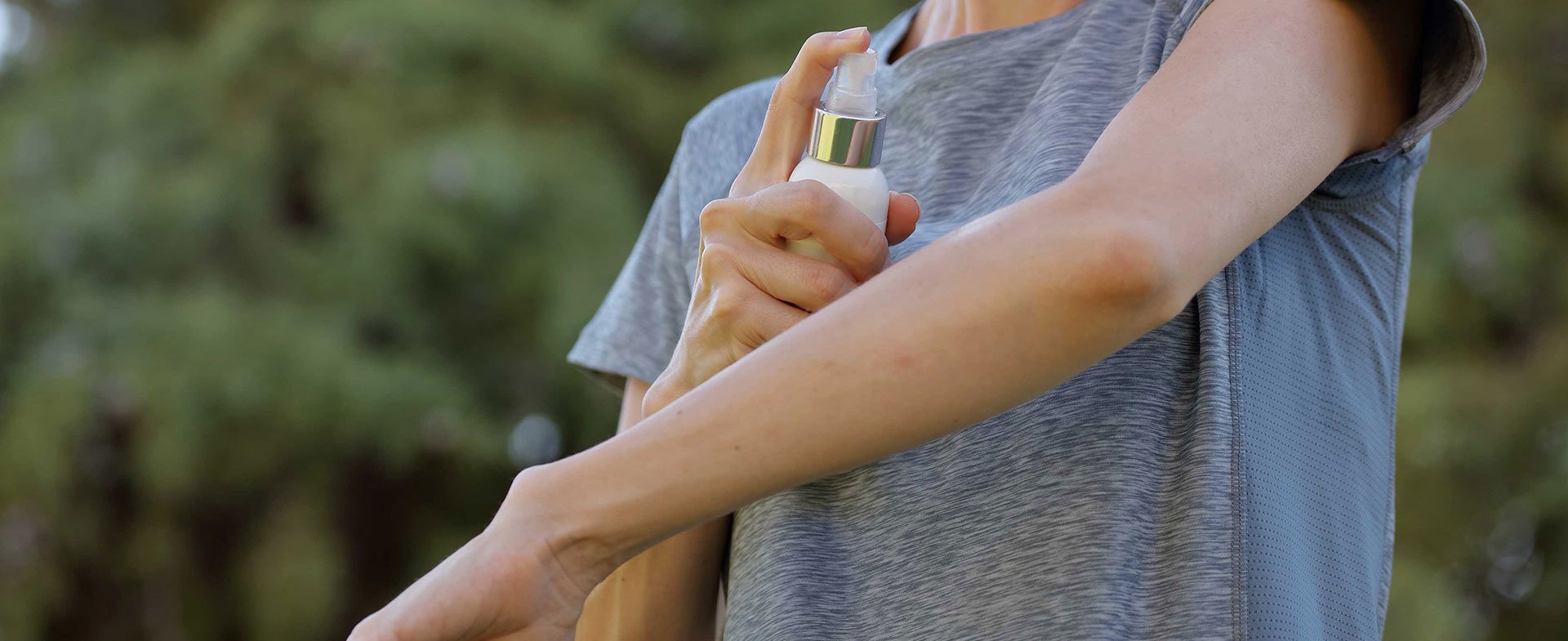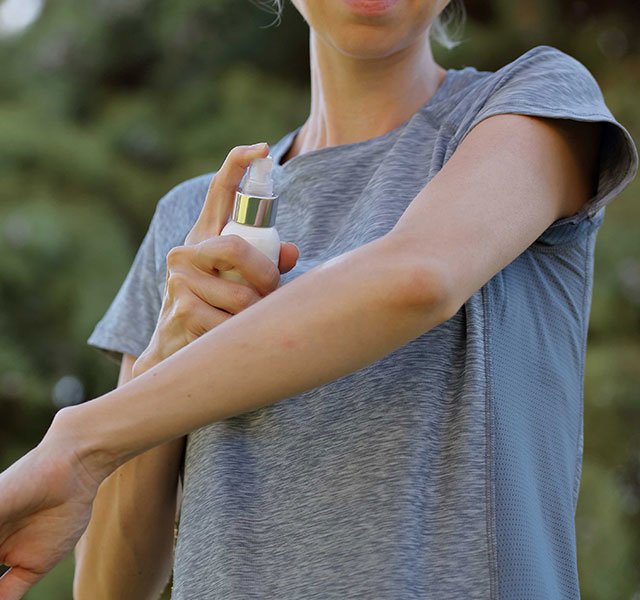One of the best things about summer is the longer days full of outdoor activities. Whether you are hiking, biking, gardening, camping or grilling, you know with warm weather also welcomes one major buzzkill to your fun: mosquitoes.
Sometimes it seems these pesky bugs are impossible to avoid. Their painful bite can bring a premature end to your summer plans – from backyard barbeques to nature walks. Not to mention that they have been known to spread serious illnesses such as the Zika virus, West Nile virus and malaria.
There are plenty of best practices out there for avoiding these bugs or minimizing your chances of getting bitten. Dina Ibrahim, M.D., a family medicine doctor for Henry Ford Health, shares tips for what you can do to maximize your time outside without being bombarded by the bugs.
Use DEET. The easiest and most effective solution is to keep bug spray with DEET on hand. DEET has been proven to keep bugs away for longer than other mosquito repellents. It’s not an option for everyone, though. DEET is not approved for children under three months old. Some people may also be sensitive to this product and develop a rash or itching. If this happens, consider all-natural options.
Try natural bug sprays. While natural repellents aren’t as effective as DEET-based bug sprays, they are still better than nothing. Many popular mosquito repellent brands offer an all-natural alternative to their DEET products. Additionally, there are many products on the market that are plant-based. For example, a compound from black pepper plants called picaridin has been found to ward off the pesky bugs. Oil of lemon eucalyptus products are another option made from gum eucalyptus trees.
Make your own essential oil repellent. Essential oils are another natural way to keep the bugs away – not to mention they smell good too! Try out this recipe that you can easily make at home. You can also swap out the essential oils used here for eucalyptus or rosemary oil, which are also known to repel bugs. Switch it up to figure out what combination works (and smells) best for you!
Essential Oil Mosquito Repellent
Ingredients:
2 ounces distilled or boiled water (use only 1 oz. of water if using jojoba oil)
1.5 ounces witch hazel
30 drops citronella essential oil
25 drops peppermint essential oil
15 drops tea tree essential oil
1 teaspoon of jojoba oil (optional)
Directions:
Fill a dark, clean, glass spray bottle with the water. Add the witch hazel and then essential oils. Shake well. Spray onto exposed skin and/or clothing. Store away from sunlight and heat. Reapply as needed.
Experiment with household or beauty products. Research has shown that some products that you might have around the house can help keep mosquitoes at bay. If you have nothing else, these options could be your last line of defense:
- Avon Skin So Soft and Victoria’s Secret Bombshell perfume. Some people swear by Avon Skin So Soft lotion to keep bugs away. Use it by itself or try out their bug guard product. As for the perfume, it seems contradicting to use a floral scent to keep the mosquitoes away. But studies have shown that this specific scent will protect you better than some other leading products.
- Some people claim eating garlic, taking a supplement or even rubbing it on your skin is said to keep the bugs away. (However, you might keep your friends and family away as well!)
Wear loose-fitting clothing. It makes sense – the tighter your clothing, the easier it is for mosquitoes to bite. Instead, wear looser clothing that is tightly woven to block the bugs from your skin. If it isn’t too hot out, consider covering your skin by wearing long sleeves or pants.
Use a fan. Stop swatting mosquitoes away and use a fan instead. Fans can prevent mosquitoes from landing on your skin. If they can’t land on you, they can’t bite you!
Avoiding standing water. Mosquitoes love water. They tend to hang around damp areas because they make perfect places to breed. If you can, take care of any standing water that may be collecting around your yard. Even avoid planning a cookout after rain. If you are in places that are always damp (think forests and near bodies of water), be prepared.
With so many options for warding off these little bugs, your summer can (hopefully) be mosquito free. If you are using some sort of repellent, make sure to continue to reapply after a couple hours.
If you do get bit, consider these remedies for itch relief:
- Ice
- Calamine lotion
- Benadryl or other allergy medicine (can be taken orally, but topical solutions are also available for bites)
- Aloe
- Anti-itch creams (mild topical steroids)
“If you develop fever, a headache, neck pain or joint pain after a bite, call your doctor,” says Dr. Ibrahim. “This could be a sign of a more serious infection.”
If you are concerned about a mosquito bite that isn’t healing, check out our many convenient same-day care options at henryford.com/sameday.
Dr. Dina Ibrahim is a family medicine doctor who sees patients at Henry Ford Medical Center – Royal Oak.



